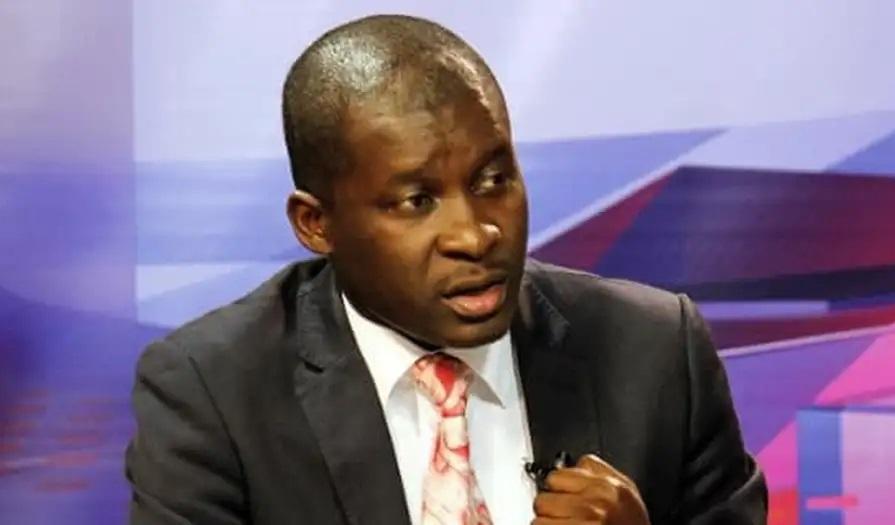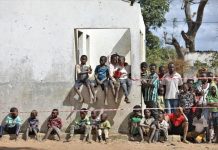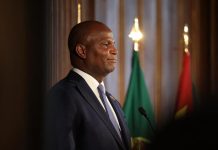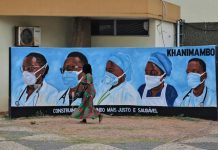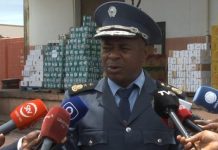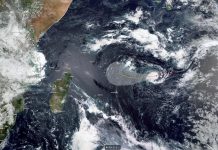Africa-Press – Mozambique. In an interview with DW Africa, Manuel de Araújo, a member of Renamo, links the European Union’s silence in the face of the post-election crisis in Mozambique to the interest in gas in Cabo Delgado.
Manuel de Araújo, a prominent member of Renamo, the largest opposition party in Mozambique, says he has no doubt that gas from Cabo Delgado has silenced the European Union (EU).
So far, the group of 27 countries has not made any statement about fraud and violence in the context of the October 11 municipal elections in Mozambique.
The EU has only said, in a statement, that it is following the case “closely”, implying that it will only make a decision after October 26, when the final results should be announced.
Araújo has criticised European observation teams harshly. His next stop is the old continent, but for now he is in the USA looking for support in the context of the electoral crisis.
DW Africa: In this post-election battle, the diplomatic front is one of Renamo’s bets. What have you achieved in your meetings with North American institutions?
Manuel de Araújo (MA): Firstly, we had very modest objectives. First, keep the various players informed about the seriousness of the situation in Mozambique. Warn them about a possible outbreak of post-election violence that could later degrade not only the business environment, but could also create social and political upheavals which could alter the established order. Therefore, Mozambique needs stability to continue to gain the preference of international investors, but it also needs to maintain a pro-democracy environment to continue to raise resources like those the Millenium Challenge Corporation (MCC) has made available to Mozambique, especially to the province of Zambézia. It’s more than US$500 million. And one of the basic conditions is that Mozambique respects democratic precepts. Therefore, these elections showed everyone that after all Mozambique is not as democratic as it might have appeared.
DW Africa: And what was the reaction of the institutions you met with?
MA: We came to deliver our report, warning these institutions that if in the local elections we had this type of state ‘gangsterism’, where the members have a contract with STAE [Technical Secretariat for Electoral Administration]. I’m talking about STAE employees, the Police and the District Elections Commission itself. They all worked in collusion to subvert the popular will, in what I literally call an authentic coup d’état. Therefore, international institutions must be alert to manoeuvres of this type.
And we wouldn’t have wanted what happened in this process. We had almost no international observers for the voter registration process; the few there were arrived at the last minute and left before the results were announced, an inappropriate attitude. We need medium and long-term missions that are on the ground to the point of understanding the challenges and what the realities on the ground are. Some missions, like the Portuguese one in Quelimane, left the day after the election, exactly when the various irregularities were being committed. This shows poor preparation of the observers, either due to lack of knowledge or lack of will.
DW Africa: So far, the European Union has not expressed any position on the post-election conflicts?
MA: On the one hand, we can say it’s strange. On the other hand, it is normal because the EU countries are going through a crisis due to the war in Ukraine. This war created a disruption in the gas market and they now rely heavily on gas from the United States of America. And this is one of the reasons why we will start with the USA and only then go to Europe, because they are subordinated to the wishes of the USA and the energy crisis has accentuated this dependence. So this silence does not surprise us. Europe is interested in gas from Mozambique and may have felt it was not opportune to comment now, as it could jeopardize its commercial interests. Most of the ambassadors accredited in Maputo seem more like commercial attachés than ambassadors.
DW Africa: So, we are saying that the gas silenced the voices of the European Union…
MA: I have no doubt. We found the attitude of the US embassy, which spoke out, to be very courageous. Although it was a very tenuous statement; it could have been more forceful. But diplomacy is diplomacy and everyone knows what their interests are. We always saw the West as a “beacon of hope”, but in recent times they have disappointed us a little, since North American democracy itself is far from what it used to be.
DW Africa: Do you think FRELIMO is aware of this fragility of the European Union and, therefore, abused electoral fraud this year?
MA: I have no doubts.
DW Africa: Do you plan to go through Brussels on your diplomatic front? What will be the approach?
MA: I’m going to visit several countries, but at this point I don’t want to mention which ones due to our adversaries. What I can guarantee you is that the next stage will be Europe and then Latin America.
For More News And Analysis About Mozambique Follow Africa-Press

